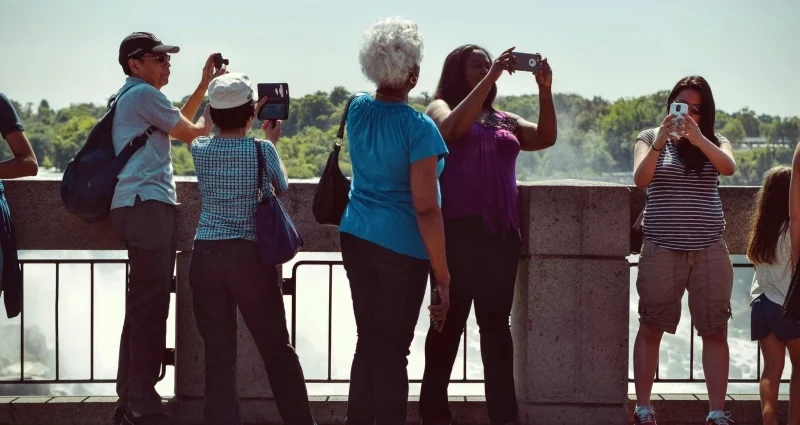- Dr. Dan Wang and his team from the School of Hotel and Tourism Management at The Hong Kong Polytechnic University highlight the significant role smartphones play in influencing travel decisions.
- The study reveals opportunities for tourism businesses to leverage the widespread use of smartphones to help tourists make spontaneous decisions.
A recent study undertaken by Dr. Dan Wang and his team from the School of Hotel and Tourism Management (SHTM) at The Hong Kong Polytechnic University reveals the increasing influence of smartphones in shaping travel decisions. This research paper, titled “Shaping In-Destination Group Decision-Making: The Sociomateriality of Smartphones,” published in the Journal of Travel Research, offers valuable insights into how tourists interact with their Internet-enabled devices to make real-time travel decisions, such as choosing destinations and purchasing decisions.
The rise of smartphones has significantly changed tourist behavior. With easy internet access and many apps, tourists are now more likely to make spontaneous decisions during their vacations. This shift towards dynamic and impulsive decision-making has led to the decline of fixed holiday itineraries. The study notes, “People increasingly postpone their decisions until after arrival, as more contextual information and ubiquitous Internet access via smartphones improve decisions.”
The research study leverages a concept known as “sociomateriality,” which explores the interaction between social and material worlds to analyze the influence of smartphones on travel decisions. The study breaks down the influence of smartphones into four key features: knowledgeability, thriftiness, referenceability, and negotiability. These features represent the different types of information tourists access through their smartphones to drive their decision-making process.
The research identified three patterns of group decision-making involving smartphones. First, the “Dominance of the Active Smartphone User” pattern, where one member’s smartphone research significantly influences the group’s decisions. Second is the “Complexity from Multiple Active Smartphone Users” pattern, where multiple group members contribute to the decision-making process, leading to more negotiation and discussion. Finally, the “Decapsulated Decision-Making” pattern, where smartphones enable tourists to seek real-time advice from social contacts outside of the immediate group.
The findings from Dr. Wang’s study go beyond examining the functional use of smartphones and delve into the social aspects of smartphone usage among tourists. The researchers found that the relationship between smartphones and tourists extends beyond mere navigation or information search. This revelation suggests that smartphones may possess their own “technology agency.” In light of these findings, the study recommends that tourism businesses pay greater attention to contextual and location-based marketing strategies to capitalize on the trend of on-the-go decision-making.
Discover more at Hong Kong PolyU.


